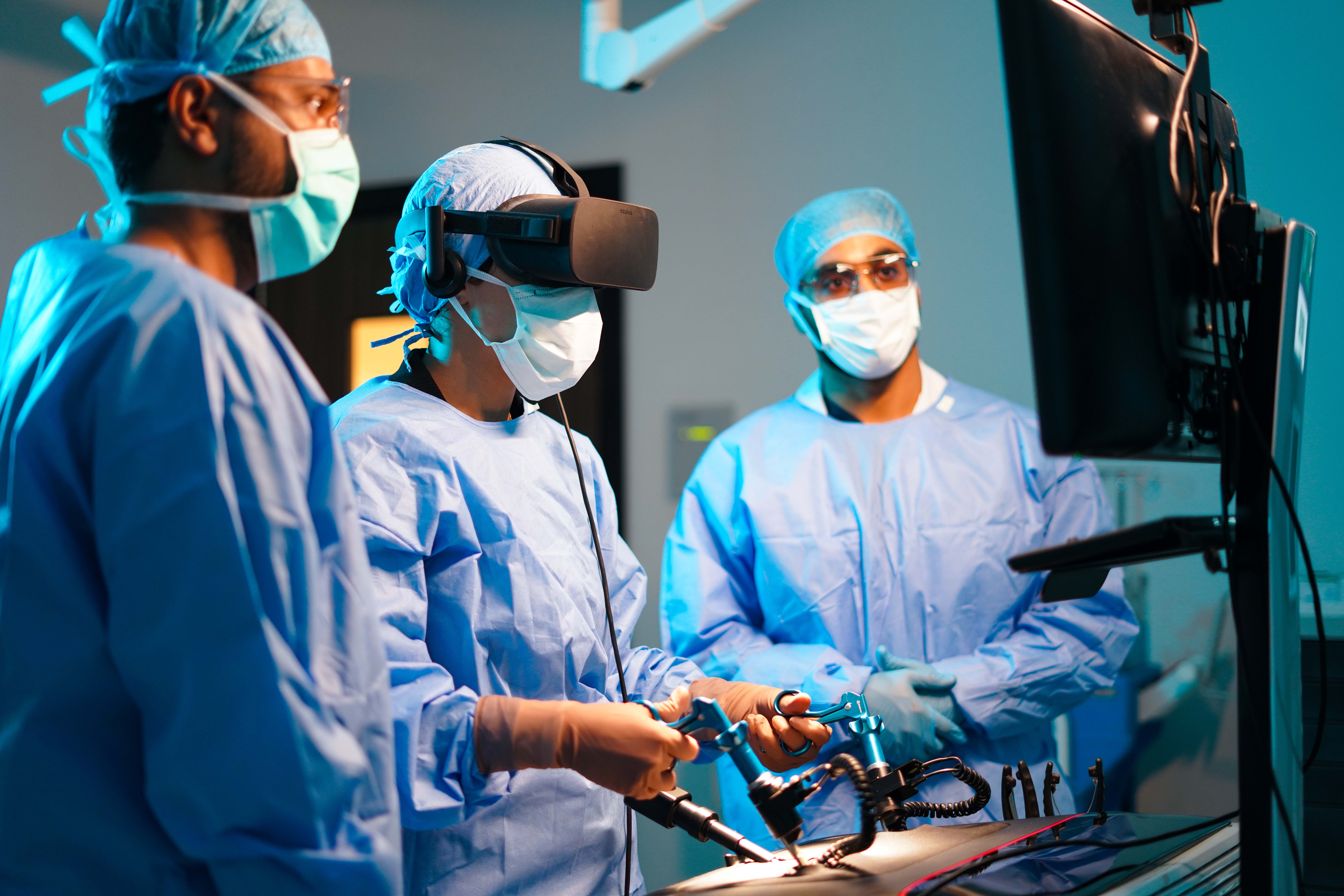Virtual reality (VR) has emerged as a revolutionary tool in medical education, transforming the training of healthcare Professionals. Its application extends beyond being merely an interactive tool, representing a step towards enhancing efficiency and rapid response capabilities in clinical settings. In this context, King Faisal Specialist Hospital & Research Centre (KFSHRC) continues to leverage VR technologies through innovative training programs that simulate clinic reality, equipping healthcare professionals with advanced practical skills and preparing them to handle diverse medical scenarios.
Coinciding with its participation as a Platinum Sponsor at the Global Health Exhibition, held in Riyadh from October 21-23, KFSHRC shares with visitors the details of its VR-based training programs for all healthcare professionals, including the phases of its implementation. The hospital also showcases its success in conducting the first virtual simulation of a medical case, utilizing it in training programs for healthcare professionals, including doctors, nurses, pharmacists, clinical dietitians, and lab technicians.
VR technology provides interactive simulated environments that allow trainees to practice complex medical procedures and precise surgeries without risking patients’ lives, including diagnosis and surgical planning. This is achieved by providing three-dimensional images of patients' bodies, enabling doctors to analyze complex cases and plan surgeries with greater accuracy. Trainees also get the opportunity to interact with virtual cases in various environments and receive immediate performance evaluation and analysis, with the ability to improve skills through repetition of procedures, thereby enhancing understanding, deepening practical experience, and reducing real-life medical errors.
The advantages of employing VR in medical education also extend to improving communication skills. By interacting with virtual patients, healthcare professionals can better understand patients' needs and the nature of their concerns, enhancing empathy and the ability to respond to their emotions.
This technology holds promising prospects for enhancing and developing medical education and training, including reducing financial burdens on healthcare institutions. By providing access to educational content without the need for physical presence in labs, VR supports collaboration and interaction among multiple medical teams in a virtual environment to collectively manage medical cases. This fosters awareness for healthcare professionals of the roles and responsibilities of their peers in other health specialties, ultimately achieving multidisciplinary learning.
This step aligns with KFSHRC's strategic direction to strengthen its position as a knowledge leader through education, research, and innovation, while providing the highest standards of quality and safety in healthcare. The hospital is recognized among the world’s leading institutions for delivering specialized healthcare and is an advanced centre for medical research and education.
It is noteworthy that KFSHRC has been ranked first in the Middle East and Africa and 20th globally in the list of the world’s top 250 Academic Medical Centres for the second consecutive year and recognized as the most valuable healthcare brand in the Kingdom and the Middle East, according to the 2024 Brand Finance rankings. Additionally, in the same year, it was ranked among the world's best 250 hospitals by Newsweek magazine.







